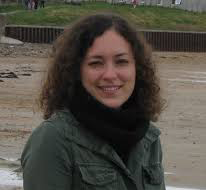Prof. Paul Turner (Yale University) & CRC 1182 Party
Program
August 9th 2019
18:00-19:00 – CRC 1182 Talk by Prof. Paul Turner (Yale University) – Virus and phage biodiversity: Potential in human therapy
19:00-19:15 – Award ceremony by the Young Investigators of the CRC
19:15 -19:45 – Reception with beer and wine
20:00-open end – Tapas & Science CRC 1182 Party with music
This event is in connection to the yearly Young Investigator Research Day (YIRD) which takes place from 8th to the 9th at the GEOMAR East Shore buildings. All attendees of the YIRD are invited to join our community evening event.
Abstract
Virus and phage biodiversity: Potential in human therapy
Earth’s biodiversity is numerically dominated by viruses that infect eukaryotes, and by phages which specifically use bacteria and archaea as hosts. Basic research on this teeming multitude yields new biological insights. In addition, these discoveries suggest that virus and phage biodiversity may be harnessed to solve difficult human problems. For example, the extreme genetic and species diversity of viruses is being used to develop oncolytic virotherapy, where tumor-destroying viruses provide alternative treatments against cancers. Also, the widespread failure of antibiotics predicts that human mortality from multidrug resistant bacterial infections will exceed cancer deaths in the coming decades, suggesting that classic phage therapy approaches should be reconsidered as possible solutions. This seminar concerns recent data on viruses and phages that are potentially useful in human therapy, especially success in bioprospecting for lytic phages that select against virulence and multidrug-resistance in target bacterial pathogens. Such phages bind to virulence-related proteins of bacteria and force evolutionary trade-offs: they kill the target bacteria, while selecting for these pathogens to evolve phage resistance by modifying (or losing) the virulence factor, causing bacterial pathogenicity to decrease, on average. Prime examples are phages that bind to bacterial proteins used in efflux (removal) of antibiotics from the cell; the phages kill susceptible bacterial cells while enriching for bacterial mutants that become re-sensitized to currently-failing antibiotics. Supportive data come from laboratory and animal studies, as well as from human cases where phages are used in emergencies to treat multidrug-resistant bacterial infections.”
Location
GEOMAR Helmholtz Centre for Ocean Research Kiel, Westshore – Düsternbrooker Weg 20, 24105 Kiel
Lecture Hall (Hörsaal) at the first basement
Registration
This CRC community evening event is open to all CRC members and Metaorganism enthusiasts.
Please sing up not later than 30.7.2019 including you and your spouse:





